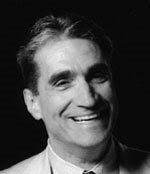While I was browsing through poetry blogs I found this entry by Brian Spears. It was entered in his blog on Tuesday, July 22, 2008. I like that it is affable, honest, intelligent and informative.
Brian Spears:
Back in March [2008], I mentioned that I was reading Mark Scroggins's new biography of Louis Zukofsky, The Poem of a Life. Mark and his family came over to our home for a dinner party a couple of months ago and he saw that I'd only gotten a couple hundred pages in. He said "that's a respectable effort," which of course meant that I had to finish the thing. And I'm really glad I did.
Some personal background on my own poetic knowledge first, though. I came to poetry in a serious way when I was an undergrad, but for me that meant in my late 20s. I went to an undergraduate university where creative writing was barely a blip on the map--there was one poet, and he taught technical writing as often as he taught poetry workshop. Good guy, good poet, but very traditional, as was the entire faculty. Criticism wasn't big in the curriculum, but what we got was basically New Criticism. And when I went to Arkansas for my MFA, that really didn't change. My reading lists didn't even include Ginsburg, much less Oppen or Niedecker or Zukofsky. The whole tradition (and I think it's fair to call it a tradition now) of Objectivist and L=A=N=G=U=A=G=E poetry didn't even really exist as far as my education was concerned. I picked up a little in passing in my workshops with W.S. DiPiero when I was at Stanford, but that's it.
So I came to Mark's book fairly ignorant of this history and of the movement and poetry that Zukofsky helped build and create, and I not only found the book informative, I found it fascinating. I took a long time to read it because I was constantly having to digest new material and fit it in with what I didn't know about 20th century poetry. It's not only a fantastic biography, it's a terrific history book in general, even if I don't share the aesthetic of the subject of the book.
Perhaps the most fascinating aspect of the book to me was the lengthy discussion of Zukofsky's formal considerations in his work. I'm not a formalist in the Tim Steele/Dana Gioia sense of the term, but I do tend to write in traditional meter and form, so I found it heartening to see that Zukofsky had that in mind when composing his poems, especially since he often made the forms he was working in more intricate, rather than finding ways to cheat. It has caused me to find ways to discipline my own writing in the weeks since I completed reading (this review has been in the works for a while now).
Which is not to say that I plan on following the poetic road Zukofsky blazed. It's just not my thing. My preference, both in reading and writing poetry, is to avoid the hermetic image. I want a poem to communicate something more than music or a frame for an idea to me. I want an emotional connection with the meaning in the poem, and I didn't find that in the selections that Mark quoted in this text. It's just a matter of personal taste. There were lots of times when Mark was explaining what was going on in a particular section of "A" and I just didn't see it, wasn't moved by the language.
That's not to say that I don't think Zukofsky did great work--this biography convinces me that he did, and anyone who can influence the path of poetry for a generation certainly had something major going on. It's just not my kind of poetry. Think of it as the clash between people who liked Swing and those who liked Be-bop. I appreciate both, but I prefer the latter. I appreciate Charles Olson, but I prefer James Merrill. The world of poetics is wide enough for all of us, I think.
Brian Spears:
Back in March [2008], I mentioned that I was reading Mark Scroggins's new biography of Louis Zukofsky, The Poem of a Life. Mark and his family came over to our home for a dinner party a couple of months ago and he saw that I'd only gotten a couple hundred pages in. He said "that's a respectable effort," which of course meant that I had to finish the thing. And I'm really glad I did.
Some personal background on my own poetic knowledge first, though. I came to poetry in a serious way when I was an undergrad, but for me that meant in my late 20s. I went to an undergraduate university where creative writing was barely a blip on the map--there was one poet, and he taught technical writing as often as he taught poetry workshop. Good guy, good poet, but very traditional, as was the entire faculty. Criticism wasn't big in the curriculum, but what we got was basically New Criticism. And when I went to Arkansas for my MFA, that really didn't change. My reading lists didn't even include Ginsburg, much less Oppen or Niedecker or Zukofsky. The whole tradition (and I think it's fair to call it a tradition now) of Objectivist and L=A=N=G=U=A=G=E poetry didn't even really exist as far as my education was concerned. I picked up a little in passing in my workshops with W.S. DiPiero when I was at Stanford, but that's it.
So I came to Mark's book fairly ignorant of this history and of the movement and poetry that Zukofsky helped build and create, and I not only found the book informative, I found it fascinating. I took a long time to read it because I was constantly having to digest new material and fit it in with what I didn't know about 20th century poetry. It's not only a fantastic biography, it's a terrific history book in general, even if I don't share the aesthetic of the subject of the book.
Perhaps the most fascinating aspect of the book to me was the lengthy discussion of Zukofsky's formal considerations in his work. I'm not a formalist in the Tim Steele/Dana Gioia sense of the term, but I do tend to write in traditional meter and form, so I found it heartening to see that Zukofsky had that in mind when composing his poems, especially since he often made the forms he was working in more intricate, rather than finding ways to cheat. It has caused me to find ways to discipline my own writing in the weeks since I completed reading (this review has been in the works for a while now).
Which is not to say that I plan on following the poetic road Zukofsky blazed. It's just not my thing. My preference, both in reading and writing poetry, is to avoid the hermetic image. I want a poem to communicate something more than music or a frame for an idea to me. I want an emotional connection with the meaning in the poem, and I didn't find that in the selections that Mark quoted in this text. It's just a matter of personal taste. There were lots of times when Mark was explaining what was going on in a particular section of "A" and I just didn't see it, wasn't moved by the language.
That's not to say that I don't think Zukofsky did great work--this biography convinces me that he did, and anyone who can influence the path of poetry for a generation certainly had something major going on. It's just not my kind of poetry. Think of it as the clash between people who liked Swing and those who liked Be-bop. I appreciate both, but I prefer the latter. I appreciate Charles Olson, but I prefer James Merrill. The world of poetics is wide enough for all of us, I think.






















No comments:
Post a Comment